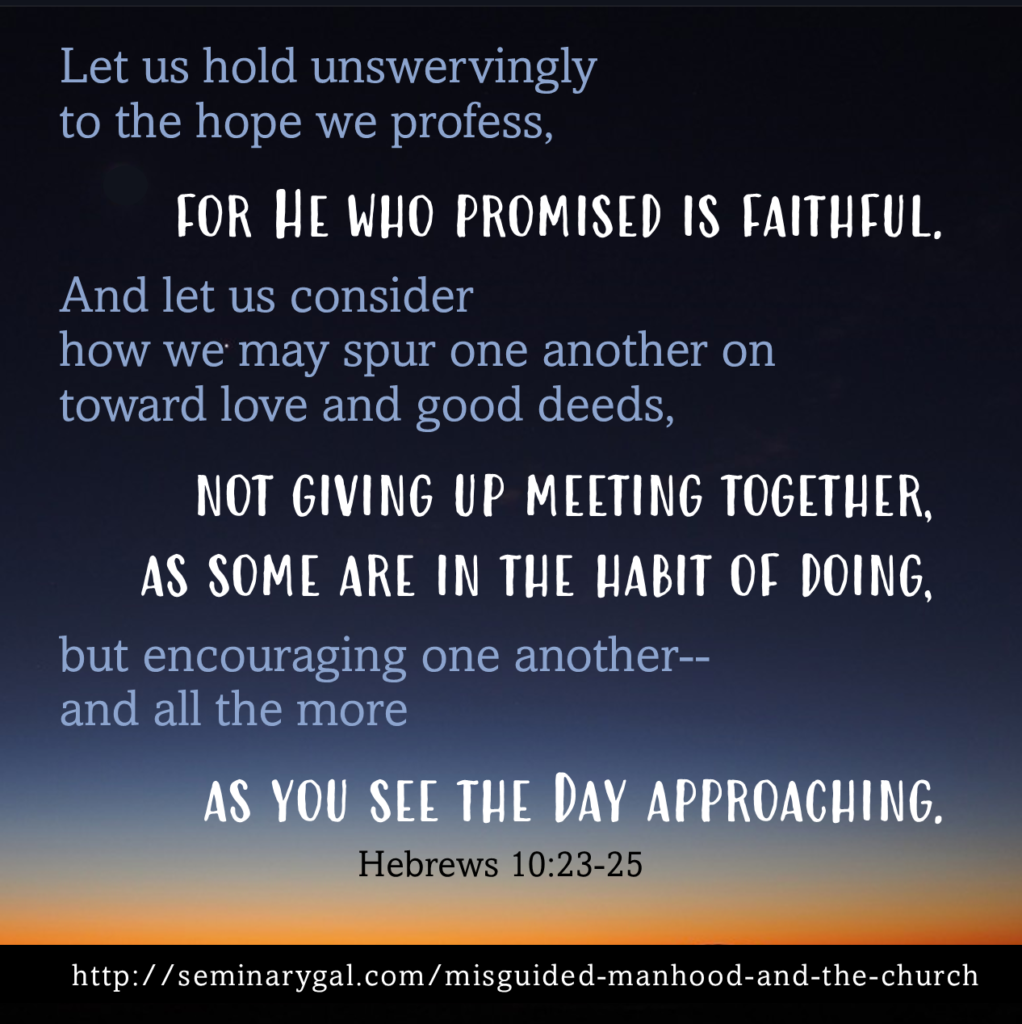
Jake Meador writes about the decline of Christianity in America in a recent Atlantic article saying,
“Nearly everyone I grew up with in my childhood church in Lincoln, Nebraska, is no longer Christian. That’s not unusual. Forty million Americans have stopped attending church in the past 25 years. That’s something like 12 percent of the population, and it represents the largest concentrated change in church attendance in American history.”
He summarizes what he sees as, “The defining problem driving people out is … just how American life works in the 21st century.”
No offense to Jake, but the defining problem is not work. It’s misguided manhood throughout society, nowhere more evident than in the Church in America. Looking for simple manhood to have as a role model? You won’t find it in the Church.
And, it’s nothing new. In a 1993 compilation of sermons by A.W. Tozer (April 21, 1897 – May 12, 1963), I was struck by how Titus 2:15 “These, then, are the things you should teach. Encourage and rebuke with all authority” is reflected in this comment,
“When the man of God stands to speak he ought to have the authority of God on him so that he makes the people responsible to listen to him…Let me tell you that I was converted from hearing a fellow who preached on the street corner I was a young working man, and I joined the nearest church—I didn’t know any better. The first time I shook hands with the pastor was like shaking hands with a baby—he had not done a lick of work since he was eighteen, I am sure, because his hands were so soft. I remember he preached one Sunday about a harp, using the subject, ‘A Harp of a Thousand Strings.’ He didn’t say much, but he said it beautifully, and it ended like this, ‘So I’m sure that the soul of a man is the harp of thousand strings.’ I went home and didn’t hear any harp. I didn’t hear any authority. I believe in the authority of God, and if a man doesn’t have it, he should go away and pray until he gets the authority and then stand up to speak even if he has to begin by preaching on a soapbox on a street corner.”
What began in the post-Christian heyday of the 1950s, took root in the 1960s silent Christian acquiescence to loud social protest. The Great Society Replacement Theology (government as father, women as leadership) took root because of men’s silence in the destruction of the family. Did they not see themselves edged out? Is it any wonder the raw feminist movement has had such horrible consequences for men and women … and the Church?
Today’s megachurches are too often led by baby-hand, Vans-wearing metrosexual dandies in American pulpits. They lack two sides of the Prism of Manhood. They have words, words, words … corporate Christianity, and seminary education, but exhibit no Authority and are not men of Action. Where is the accountability, the responsibility Tozer talked about?
That is why people don’t go to church. It doesn’t mean they’re not Christians anymore to counter Jake from the Atlantic’s assertion. It’s just they don’t see the point of Church anymore.
Questions for further thought:
When people in the pews don’t see the point in going to Church, why would they value church attendance (in-person or online) as a priority for 90 minutes on a Sunday?
How have social media, online presence, and COVID changed people’s views of how to have community and “do church?”
When a vibe of manhood departs the Church, what is left behind? How does that resultant vibe seem to men outside the church who are searching for male role models?
How did the Great Society contribute to fatherless homes, particularly in the Black community, which was at one time the strongest Christian powerhouse in the nation?